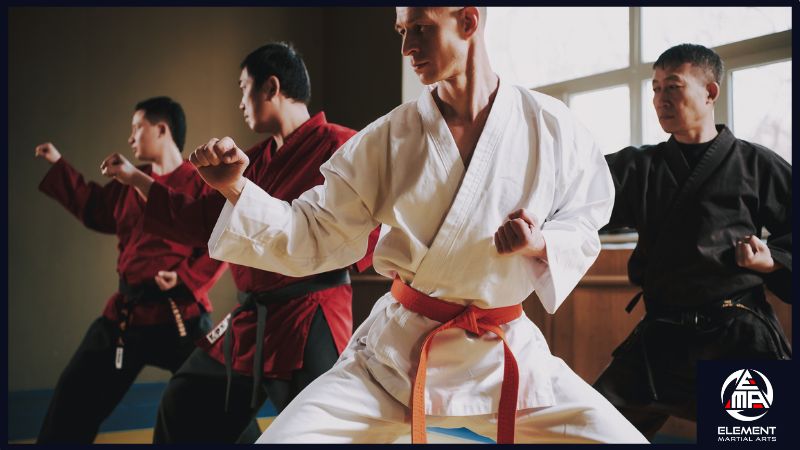The Evolution of Tae Kwon Do: Tracing Its Roots and Global Impact

This article delves into the rich history and global influence of Taekwondo, tracing its origins from ancient Korean martial arts to its status as a revered global discipline. It highlights the pivotal moments in its evolution, including the unification and modernization efforts in mid-20th century Korea, its introduction to the world stage, and its official recognition as an Olympic sport. Today, Taekwondo stands as a cultural ambassador for Korea, embodying values like respect, humility, and perseverance. Beyond its physical and competitive aspects, Taekwondo fosters international camaraderie and personal growth, making it a unique blend of tradition and modernity that connects people across the globe.
In the intricate tapestry of martial arts, Taekwondo stands out as a discipline that is both profoundly rooted in history and vibrantly alive in the present day. This Korean martial art, known for its dynamic kicks and emphatic strikes, has traversed a remarkable journey from its inception in ancient times to becoming a global phenomenon. The evolution of Taekwondo is not just a story of a fighting style; it's a narrative enriched with cultural significance, national pride, and the unifying power of sport. In this exploration, we delve into the origins of Taekwondo, chart its development, and reflect on its worldwide influence.
A Confluence of Ancient Martial Arts
The story of Taekwondo begins in the crucible of Korea's history, where it emerged from the synthesis of various indigenous Korean martial arts practices. These practices were influenced by neighboring countries and the shifting dynamics of Korea's own kingdoms. The earliest precursors to Taekwondo can be traced back to "Taekkyon," a traditional Korean form of fighting, and to the martial arts of the Goguryeo and Silla dynasties. It was during the Silla Dynasty that Hwarang, a military academy for the noble youth, emphasized physical prowess alongside moral development and scholarly learning. The martial arts taught to these young warriors included techniques that are recognizable in modern Taekwondo.
The Modernization and Unification of Taekwondo
The pivotal chapter in Taekwondo's history began in the mid-20th century when Korea sought to recover and redefine its cultural identity following the end of Japanese occupation. Several Korean martial artists, who had studied different styles domestically and abroad, sought to create a unified Korean martial art. This effort was both a reclaiming of cultural heritage and a response to the need for national unity. In 1955, Taekwondo was officially named and adopted as this unified martial art. It combined elements of Shotokan karate, traditional Korean martial arts, and the philosophical underpinnings of Korean history. The formation of the Korea Taekwondo Association in 1961 marked a significant step in organizing Taekwondo as a formal discipline, setting the stage for its international spread.
Spreading Wings: Taekwondo's Global Journey
Taekwondo's introduction to the world stage was facilitated through its demonstration at the 1964 Tokyo Olympics, a strategic move that showcased its unique identity and appeal. In the decades that followed, Taekwondo schools began to proliferate worldwide, driven by Korean instructors who traveled abroad to teach. The establishment of the World Taekwondo Federation (WTF) in 1973, now known simply as World Taekwondo, was a crucial development in standardizing rules for competition and fostering international relationships. This global body played a significant role in Taekwondo becoming an official Olympic sport in the 2000 Sydney Olympics, a milestone that elevated the martial art's profile on the international stage.
Taekwondo Today: A Cultural and Athletic Legacy
Today, Taekwondo is more than just a martial art or a sport; it is a cultural ambassador for Korea, a tool for personal development, and a medium for international camaraderie. Its practice is imbued with the values of respect, humility, perseverance, and indomitable spirit—principles that resonate with practitioners beyond the dojang. As a competitive sport, it has evolved to incorporate more sophisticated techniques and strategies, benefiting from technological advancements in training and refereeing. Moreover, its role in fostering cultural exchange and mutual understanding among people of diverse backgrounds cannot be overstated.
The evolution of Taekwondo from ancient martial practices to a global sport underscores the dynamic interplay between tradition and modernity. It reflects the resilience of the Korean spirit and the universal appeal of a discipline that emphasizes not only physical agility but moral integrity. As Taekwondo continues to adapt and grow, it carries forward a rich legacy that transcends borders, connecting people across the world through shared values and the love of the art. Whether one is drawn to Taekwondo for fitness, self-defense, competition, or cultural exploration, it offers a path to personal growth and global understanding. In tracing the roots and impact of Taekwondo, we find a compelling story of transformation and unity, a testament to the enduring power of martial arts to inspire and bring people together.
Written on behalf of Element Martial Arts.
FAQs
Taekwondo is unique in its combination of dynamic physical techniques, deep philosophical underpinnings, and its role in promoting moral integrity and personal development. Its evolution from a national martial art to an Olympic sport and global phenomenon underscores its appeal as a discipline that transcends physical fitness to embody a way of life that connects people across cultural boundaries.
World Taekwondo, formerly known as the World Taekwondo Federation, is the international governing body for Taekwondo. Established in 1973, it plays a crucial role in standardizing competition rules, fostering international relationships, and promoting Taekwondo as a sport and cultural practice globally.
Taekwondo originated from a blend of various indigenous Korean martial arts practices, significantly influenced by the ancient Korean kingdoms and the martial art of Taekkyon. It evolved over centuries, incorporating elements from neighboring countries and adapting to Korea's historical and cultural changes.
If my mind can conceive it, my heart can believe it, then I can achieve it.
Contact our studio at 368-993-5668 today or get in touch with us. We look forward to speaking with you. (please note that the form below may take a few seconds to load. thanks for your patience!)

